Dawson Creek to implement Stage 2 water restrictions due to recent cold and drought by Michael Popove, CJDC-TV News, January 25, 2024
DAWSON CREEK — ![]() NEBC’s frac frenzy and
NEBC’s frac frenzy and![]() The recent cold snap and current drought conditions in the Peace Region is affecting the water supply in Dawson Creek.
The recent cold snap and current drought conditions in the Peace Region is affecting the water supply in Dawson Creek.
With that in mind, the City of Dawson Creek has activated Stage 2 Water Conservation Measures effective February 5, 2024 until further notice.
According to the City of Dawson Creek, during Stage 2 Water Conservation Measures a person must not:
– water lawns, except for on specified days and times by specific addresses
– use a hose providing water to wash boats or motor vehicles, unless the hose is equipped with an automatic shut-off device![]() frac’ers?
frac’ers?![]()
– haul bulk water for non-potable use![]() frac’ers?
frac’ers?![]()
Hauling bulk water for non-potable use is the key area that will be affected during these winter months.
The city says this restriction does not in any way impact drinking water for rural residents or impact commercial hauling for drinking water.![]() What about hauling drinking water hoarded for frac’ing?
What about hauling drinking water hoarded for frac’ing?![]()
Mayor Darcy Dober said the restrictions are a precautionary measure.
Water levels in the Dawson Creek area are currently being affected by existing drought conditions, the recent frigid temperatures and a recent increase in demand from industry.
The Province of British Columbia is experiencing a historic period of drought.
The northeast of the province, including Dawson Creek, is at the highest and most severe level of drought.![]() Can’t fight wildfires without water
Can’t fight wildfires without water![]()
The Kiskatinaw River upstream from the City’s intake reservoir is likely frozen due to the recent cold spell.
This has resulted in the river levels dropping, and the flow of the river could not keep up with the City’s current pumping rate.
Pumps were switched off in order to monitor the levels and gain a better understanding of current pumping capacity.

Refer also to:
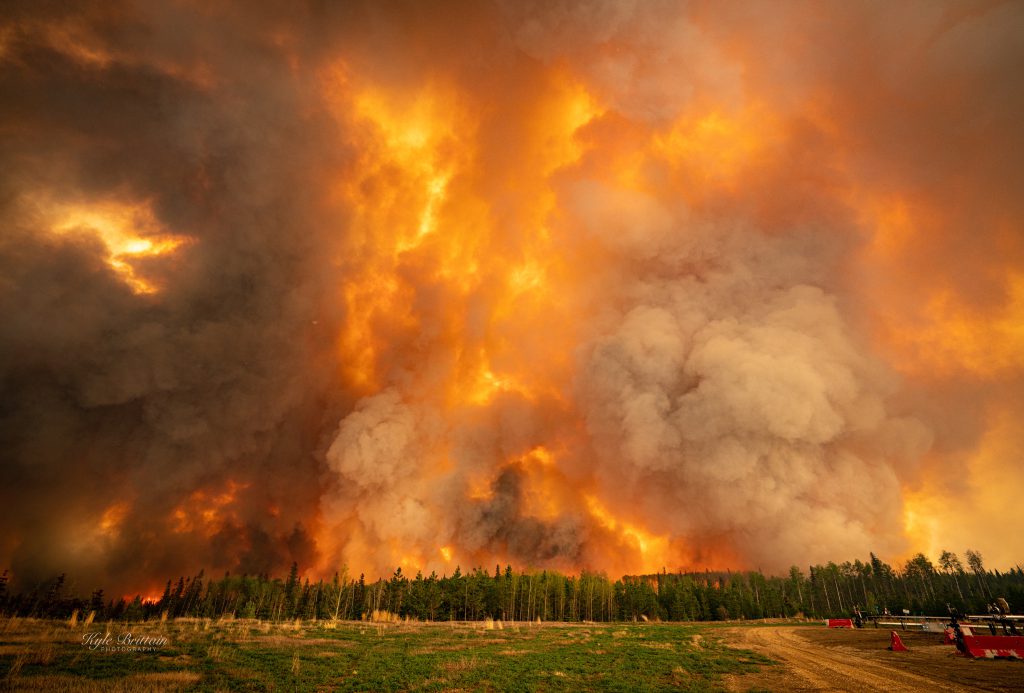
2023 Fox Creek (frac central) Alberta wall of fire, photo by Kyle Brittain
Imagine fighting fire with frac’d methane and ethane contaminated water?
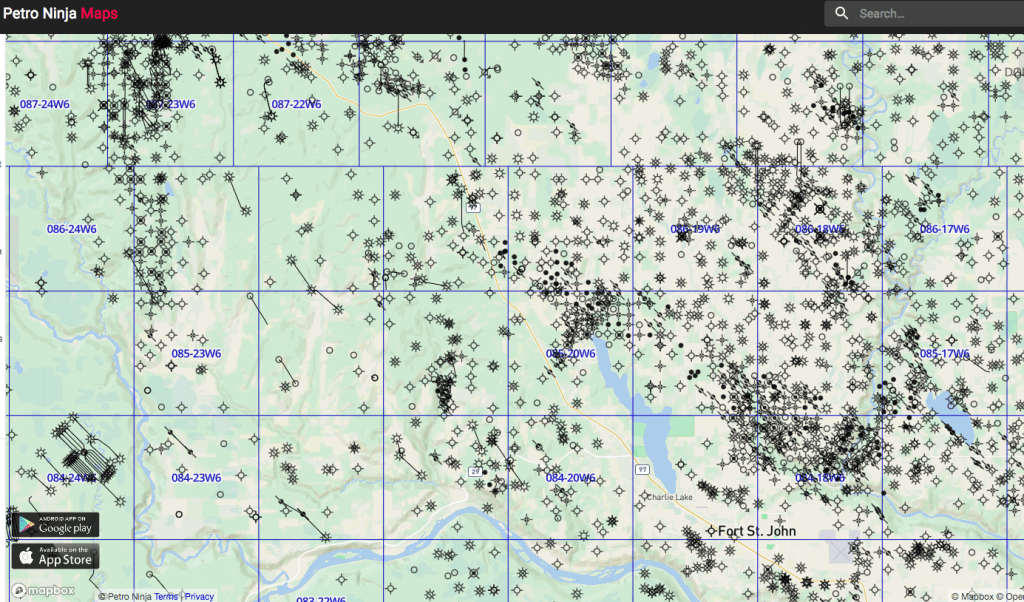
Rose Prairie is 31 km north of Fort St John
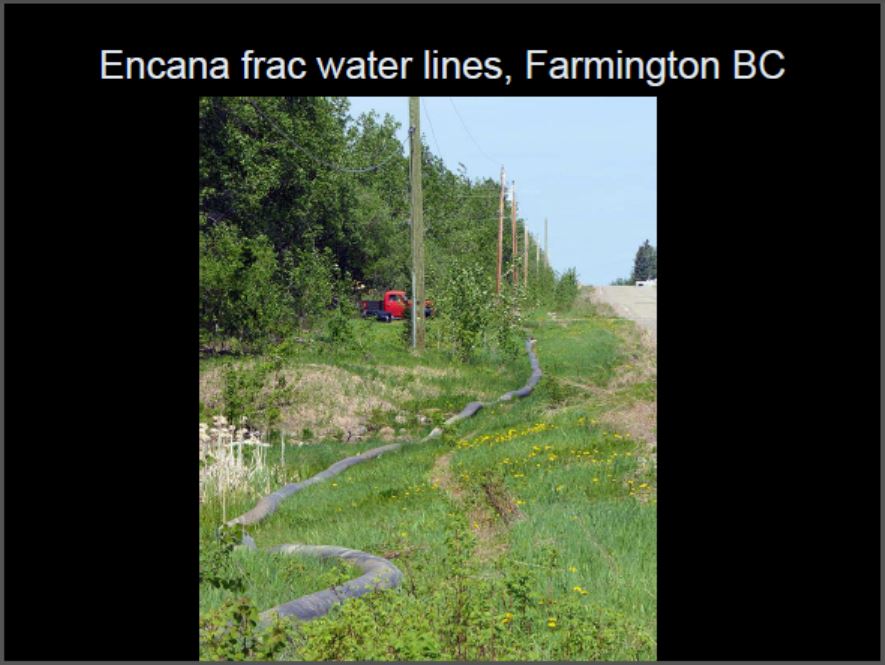
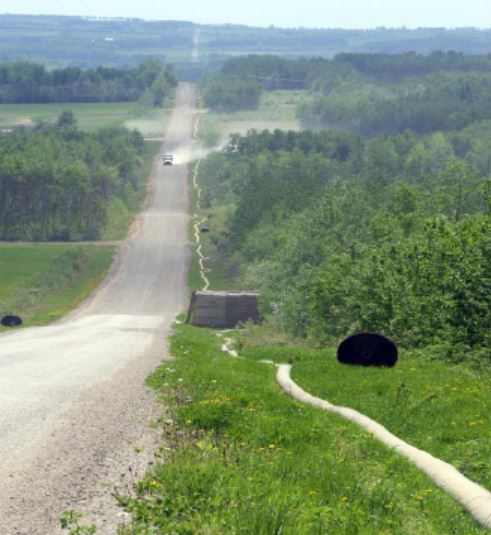
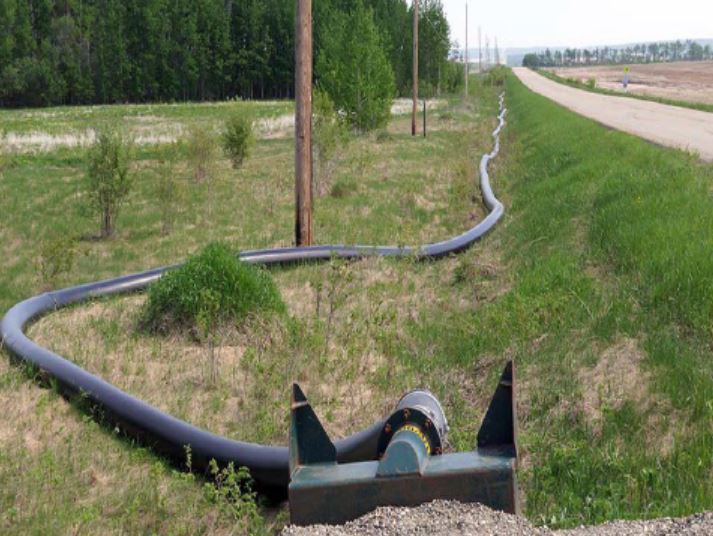
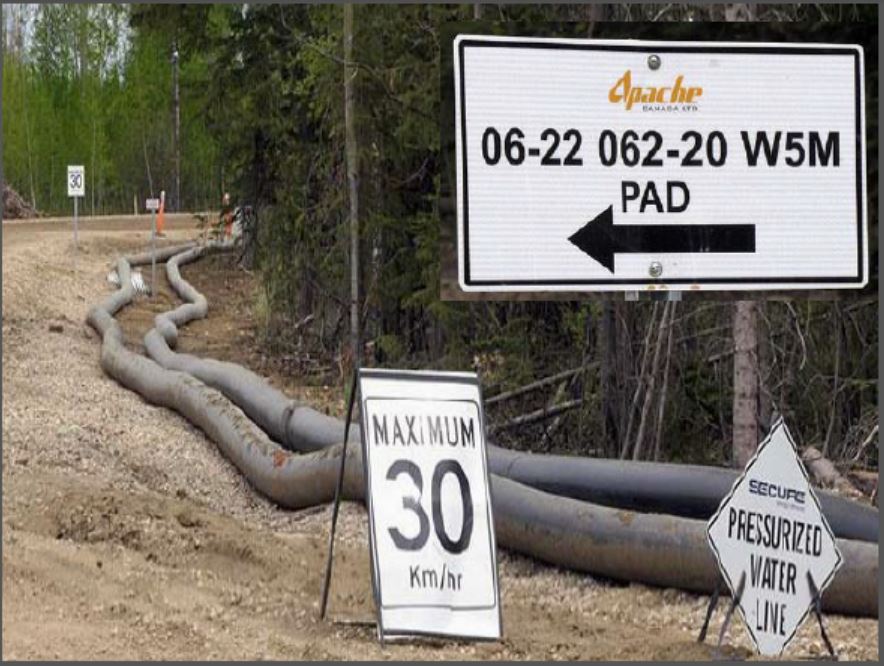
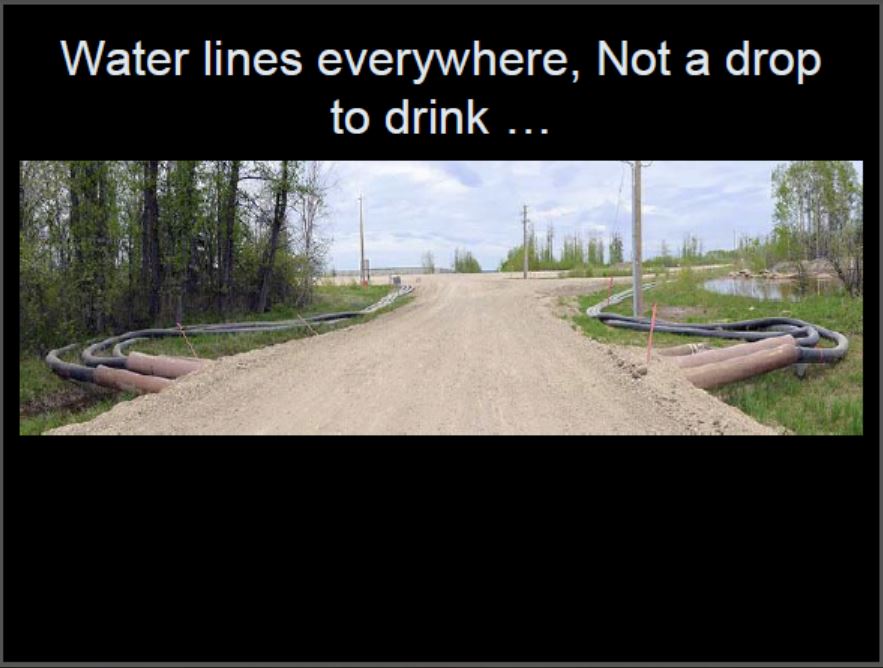
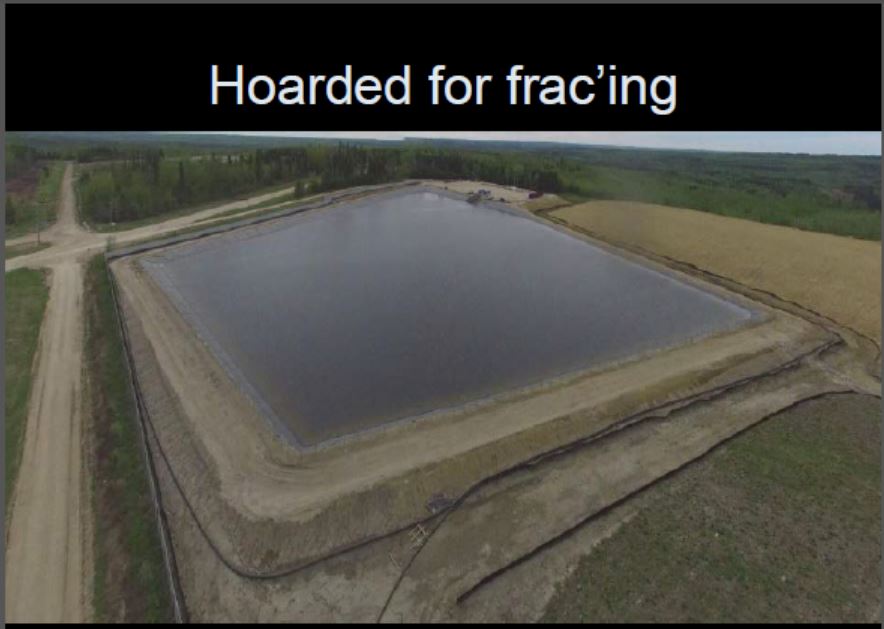
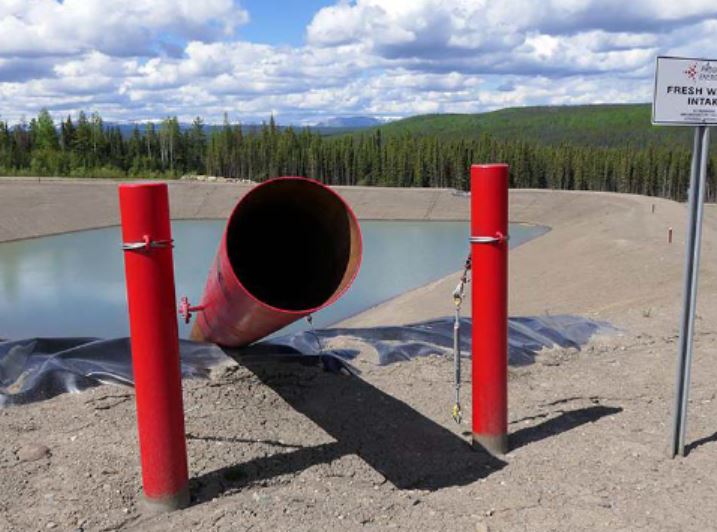
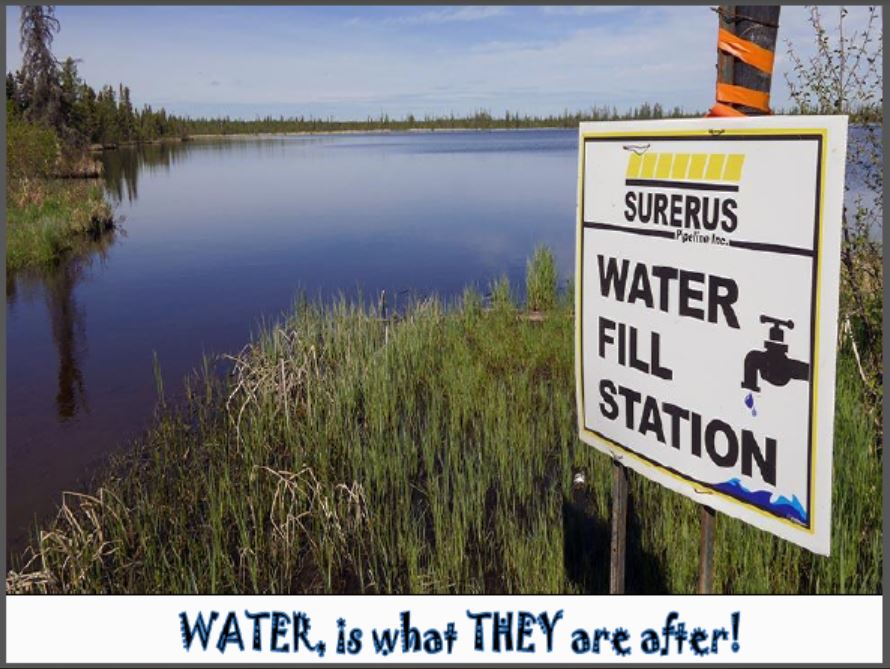
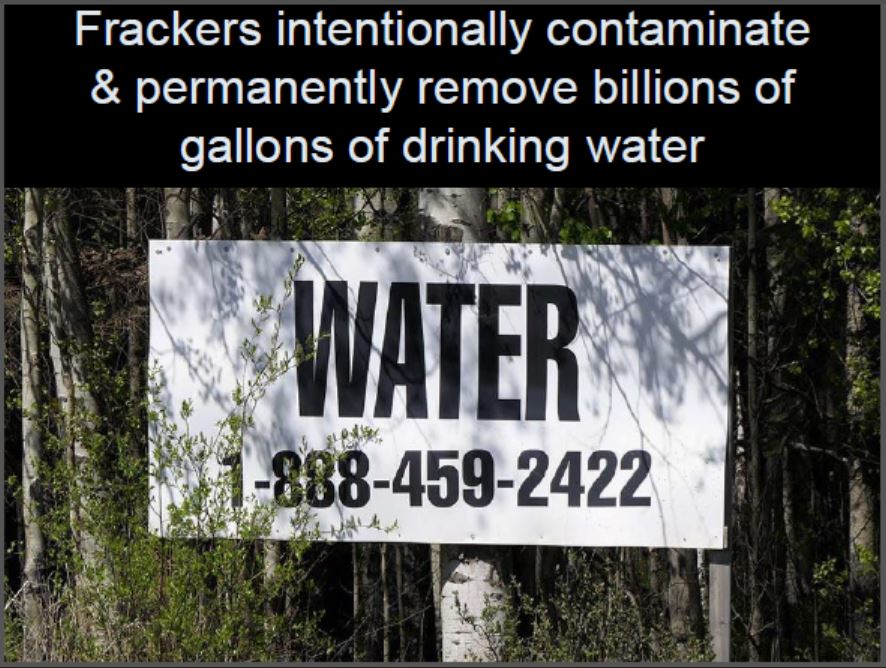
A proportion (25% to 100%) of the water used in hydraulic fracturing is not recovered, and consequently this water is lost permanently to re-use, which differs from some other water uses in which water can be recovered and processed for re-use.
